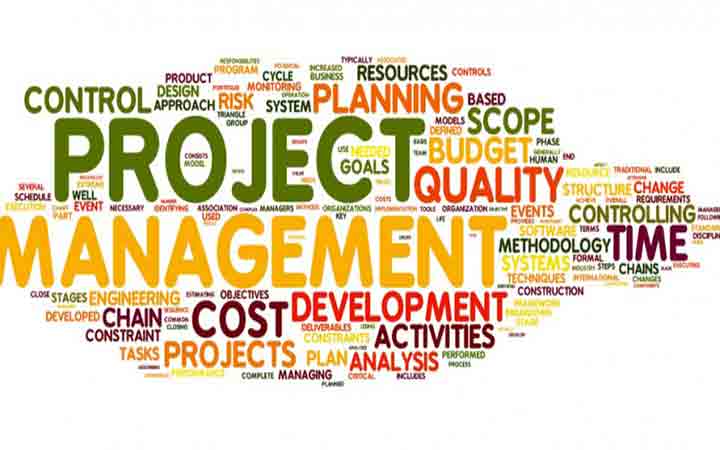For Students
Reasons to choose Project Management as a Career Path
Admin Aug 10, 2022 02:15 PM

TAGS
Modern-day corporations' unsung heroes are project managers. Almost all major new initiatives in any organization begin as projects in the end. Organizations live and function in a project-based environment, from adopting new software systems to producing new products to executing core strategic strategies. And it is the project managers who bear the brunt of the responsibility for turning ideas into reality. A PM position appears to be one of the most difficult leadership positions in a firm. Project managers are always in demand: Qualified specialists are always needed to plan and execute the task, regardless of the business. Of course, this is only a high-level overview of project management, which can be a challenging and rewarding profession.
Scope of Project Management
In today's agile climate, project management has become a highly sought-after job path. To be effective, project management, like many other careers, necessitates a diverse set of talents. Project managers should be competent problem solvers, have above-average math skills, and be clear communicators in addition to having strong organizational skills. A project management career may be an excellent fit for those who love a variety of duties.
According to PMI's recent analysis on PMP job growth (Project management – Job Growth and Talent Disparity, 2017 – 2027), there is a growing gap between the demand for skilled PMPs and their availability around the world. As a result, employers and organizations are on the lookout for project management experts. This gap allows the candidates to match their skills with the fast growing industry requirements.By 2027, there will be a demand for 87.7 million PMP positions — an impressive number, isn't it? Due to increased demand and high attrition (due to many retirements), project management jobs will be plentiful in the future in a variety of industries, including information services and publishing, management and professional services, manufacturing and construction, finance and insurance, utilities, and so on. According to study undertaken by Anderson Economic Group (AEG) in collaboration with PMI, there will be a rise in PM related occupations in the United States from 6.7 million in 2017 to 8.8 million in 2027.Over a ten-year period, this figure in India rises from 14.7 million to 21.7 million in 2027. According to this study, PM-related job growth will increase by 33%. Apart from the fact that there will be a lot of employment for PMs in the future, it's also encouraging to learn that PM roles will be financially rewarding.

Why is Project Management important?
Rapid growth and globalization in recent decades, external and internal environmental changes, global competition, abrupt technological changes,new expectations of now more educated customers than before and new customized product and service requirements- these are just a few of the factors that organizations face in today's economy. If the organization does not respond to these constantly changing factors, it may put itself in a grave danger. Its continued existence could be jeopardized in the future. As a result, assessing these risks and effectively managing them in order to make appropriate changes is critical. A project manager is in charge of overseeing a wide range of minor and large-scale projects. While working on a project, an experienced PM expert understands how to detect, assess, and manage risks. He is skilled at implementing the essential adjustments in a seamless manner. He makes the essential changes easier by involving the right people.A project manager, in this view, is someone who adds value to a firm. He assists organizations in dealing with potential dangers up front. And it ensures the project's long-term viability by ensuring project goals are met.
What does Project Manager do?
Planning, organizing, leading,controlling, securing, and managing resources and tasks to meet particular business goals are the basic principles of project management. Project managers devise strategies for kicking off the project, evaluating and comprehending the project requirements, analyzing and bringing on board the essential professionals, and monitoring the work's progress. Multiple projects, tasks and schedules can be exceedingly challenging to manage, but with the right kind of training and experience, anyone can learn to do so and more.

Let's look at the points below to learn more about the function and responsibilities of a PM:
Planning and Scheduling-Before beginning work on a project, project managers plan and schedule it. Which gives them direction on how to move forward while staying on schedule.
Boosting team morale: A key element of a PM's work is people management. Because project managers are in charge of a large number of individuals. They don't miss any opportunities to motivate and support their project teams. And they make certain that their teams' efforts are rewarded in the end.
Managing resources: They are skilled in efficiently managing project resources, especially personnel. And bring out the project's results while keeping the cost aspect in mind.
Controlling cost overruns: The project manager ensures that cost overruns are kept to a minimum. They are in charge of finishing projects on time and on budget. They alert key parties well in advance if there is any discrepancy. Therefore, the risk of last-minute shocks is reduced to much extent.
Keep learning and retaining knowledge: They are given the opportunity to work in a variety of challenging contexts. As a result, they bring a wealth of experience and knowledge with them. Each project teaches them something new. And keep their knowledge and experience as assets to the company.
Assuring expected quality: They make certain that the project's quality is maintained at the highest level. They make ensuring that the project's deliverables meet or surpass the expectations of all stakeholders, including end users and customers.
Managing and assuring integration: They ensure that various functions are managed and integrated. To achieve the targeted project outcomes, ensure that project methodology and PM knowledge domains are integrated.
Change deployment: Project managers are also in charge of implementing and deploying required modifications. Project managers are in charge until time changes are implemented and normalized. As a result, they are also referred to as change agents.
Why become a Project Manager?
If you want to get actively involved in project work,developing your leadership skills, and eventually taking on the project management job is a great approach to get started. Here are some reasons why project management is a good career choice and how it can help you prepare for a top leadership position.
Constant Development- Every new project you work on brings with it a new set of stakeholders and a new team. Regardless of how many projects and classes you've completed previously, you'll essentially be learning as you go. There's also the chance to develop abilities that aren't always possible to develop in other fields. For example, whether you work on projects or not, you will constantly come with difficult stakeholders in your field of work. Even better, there are hundreds of project management books and training courses for all types of soft skills. As a result, you'll be able to grow in areas where you're interested.
Career Progression-If you decide to pursue project management as a career, you can simply begin as a project coordinator and swiftly advance to junior project management positions. After that, you can work your way up to managing your own projects, and as your skills improve, you'll be able to take on larger and more difficult projects. You won't need a lot of expertise to make the transition to managing programmes and eventually portfolios. You can go sideways into one of the several related professions, such as Project Office Manager, or specialize in one area, such as resource allocation or scheduling, with a career in project management.
Dealing with Uniqueness- Projects are by definition one-of-a-kind and temporary. They entail all of the work done only once in order to generate and finish something completely fresh. Each new product is a one-of-a-kind endeavour, whereas implementing a new software system is a one-time event. Moreover, putting any strategic plan into action this year requires different initiatives than it did five years ago. Despite the fact that project managers frequently learn from previous initiatives, they are always leading and driving a new and distinct effort.
Learning opportunities and Expanding knowledge- Every day, you will learn something new in your PM role. Project managers are able to retain a wealth of information. And then share them with the organization and its workers to ensure long-term success. They understand how to gather and manage knowledge in order to ensure the success of future projects. As a result, a seasoned project manager is a valuable addition to the company. If you're a quick study. This profile will assist you if you want to expose yourself to a variety of learning possibilities.While a project management position assumes you know a lot about coordinating teams, you still have a lot to learn in order to get the best results. Aside from the numerous project management courses accessible, there's a chance that your coworkers will teach you a few new skills and increase your expertise of some industries.
You become more Detail-oriented- Although detail orientation is a need for most employment, project management is a little different. These particulars will have a significant impact on the final result in this case. You'll learn not just to detect but also to anticipate how each element will affect the project. You'll be able to quickly develop tactics and refine new ideas for team collaboration using this information. Furthermore, you will quickly see how minor errors made by one member of your team can have catastrophic effects for the entire team and project. By pursuing a career in project management, you will gain an appreciation for the importance of minor details, which you will be able to recreate in a new setting and in real life.
High salaries-If you're considering a career in project management, you've probably already heard about the high pay connected with this position. Because of their ability to take on difficulties in some of the most complicated settings, PM professionals are compensated well. You can earn a competitive wage as an information system or internet project manager, and you'll have long-term stability. Large and medium-sized organizations rely on project managers to expand and flourish in their fields, necessitating the need to pay these professionals well. The annualised compensation of a PM Professional in the United States is 120 thousand US dollars, according to PMI's "Project Management Salary Survey - 10th Edition" report. In India, it is between 25 and 26 thousand US dollars.
Make an Impact and act as a Change-Agent- Many people strive to be in a position that is both important and desirable in order to contribute positively to an industry or corporation. Working in project management allows you to collaborate with a variety of people and be pushed by challenges that must be resolved while also providing you with a career that is not monotonous. You will be rewarded as a project manager if you keep your schedule on track, stick to the budget, and coordinate with coworkers to ensure that everything runs smoothly. As a change agent, the project manager plays a role. After a project is completed, he is adept at implementing the necessary revisions. Any project's success hinges on this factor. This profile is for you if you appreciate new challenges and are good at managing change.
Demand and Future Prospects: As previously stated, PM professionals are in high demand. There will be a lot of demand for these competent PM personnel as the necessity for PM-oriented occupations grows. As a result, pursuing this vocation will provide you with numerous career opportunities.
People Oriented-If you enjoy being surrounded by others, this is the personality type for you. And if you're skilled at managing them, this is the right profile for you. PMs are skilled at interacting with stakeholders and gaining their buy-in to complete projects.
Travelling Across the Places- If you enjoy travelling worldwide, this is the place to be. PM-related profiles, on the other hand, provide you with such an opportunity. You may be required to travel across the globe to lead several projects.
Working Flexibility-Though PMs are expected to work substantially on a project, they must be able to operate in a flexible manner. However, they frequently have the freedom to work where and when they want. Virtual interfaces, such as video conferencing, allow people to join from all over the world. As a result, this profile achieves a healthy work-life balance.
Different industries and sectors: A PM's work isn't restricted to a single industry or area. Furthermore, this position allows you to work in a variety of contexts and industries. Project managers can work in a variety of sectors, with the exception of some unique sectorial requirements for IT or building projects. This increases your chances of finding a career in the industry of your choice or to gain knowledge and experience in a variety of other business environments.
Risk Manager: PMs are in charge of risk management. They assist companies in identifying potential dangers when working on a new project. They keep an eye on all the possible risk factors or scenarios. And they have a plan in place to mitigate these risks utilising their risk management expertise. They greatly lower the odds of project failure in this manner.
Get ready for the CEO level: A project manager's responsibilities and exposure are quite similar to that of a CEO. Because they are both in charge of people. They're both concerned about the bottom line. They both take charge at times to attain their objectives. In addition, they both create goals and convey their expectations to the team. As a result, we might regard the PM function to be a type of professional training for future CEOs.

Concluding this article, Project managers assist businesses in increasing efficiency and reducing costs in order to improve overall performance. Despite having a big list of obligations, you may be able to have a beneficial impact on those around you. It is simple for you to stay motivated in the role because you must develop new plans that necessitate experimenting with various ways to fulfil the needs of your stakeholders. Working in project management will greatly boost your professional life if you want to follow a career that allows you to feel fulfilled. You'll be stimulated and challenged in a position that allows you to switch industries and assist those around you with the unique abilities you gain.
Search
Latest Blogs

Exploring Opportunities in Emerging Engineering field
Admin
Dec 14, 2024 05:18 PM

Navigating College Majors
Admin
Sep 25, 2024 04:04 PM

Tools for Measuring Strengths For Career
Admin
Sep 25, 2024 03:27 PM
Interested in getting latest updates?
SUBSCRIBE


















